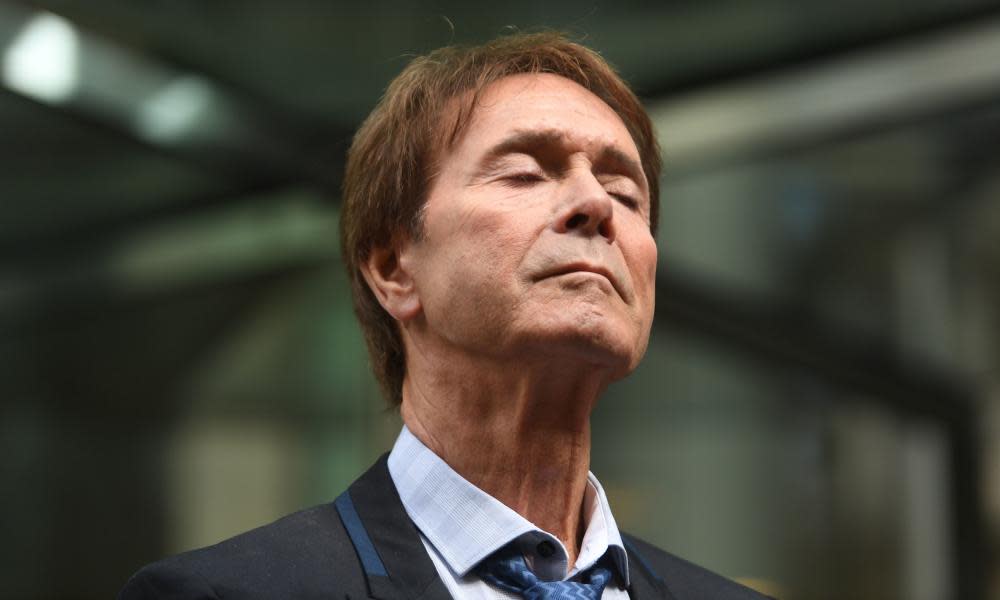The Guardian view on Cliff Richard’s court victory: a threat to journalism

The decision at the high court this morning in favour of Sir Cliff Richard and against the BBC highlights restrictions on the freedom of the press. The corporation’s use of a helicopter to film a search of the singer’s Berkshire home in August 2014, following a tip-off from police, attracted much comment at the time. The police and the BBC have both apologised. But Mr Justice Mann ruled that the simple fact of having named Sir Cliff at all broke the law. His judgment raises questions on what reporters are allowed to say – and the public is allowed to know. This is ominous, and the BBC is right to consider an appeal despite the enormous bill it already faces, with £210,000 damages awarded so far, and costs expected to be in seven figures.
Sir Cliff’s house was searched by South Yorkshire police following an allegation that he had sexually abused a teenage boy at a Christian rally in Sheffield in the 1980s. The search was part of Operation Yewtree, the investigation into sex abuse that followed the unmasking of Jimmy Savile as a serial sex offender, and took place shortly after the release of a report into Savile’s abuses. But in 2016 Sir Cliff was told by prosecutors that no charges would be brought, and the star announced his intention to sue broadcasters and police for invasion of privacy and data protection breaches. The BBC’s head of news, Fran Unsworth, said in court that she believed the BBC would have faced criticism had it failed to report that police were investigating such a high-profile figure. Sir Cliff’s is not the only recent case to test this area of law, specifically how the right to a private life is balanced against the right to free expression.
Once, the idea that anyone being investigated by police for having potentially committed a serious crime had a reasonable expectation of privacy would have seemed far-fetched. Reports of such investigations and arrests are the bread, butter and jam of local news reporting. But over the past few years, and culminating at the high court this week, a series of decisions has threatened to make such reporting challenging – particularly where the individual or organisation concerned has the resources to go to court. In the House of Commons, the Conservative MP Anna Soubry today proposed a “Cliff’s law” to ban the media from naming suspects until they are charged. Such a gag would be a grave mistake.
As news organisations, it is our job to tell people what is going on. That is why journalists from the BBC to the Sun have mounted such an unusual display of unity in their horrified reaction to this ruling. The idea that the activities of the police could be placed off limits to reporters is anathema. It means placing them off limits to the public. Reports of arrests can lead to further complainants coming forward. If we aren’t allowed to report on work in progress, it is difficult to see how anybody would find out when the police get things wrong.
Privacy matters, and the Guardian believes in it. From our investigation into phone hacking to our reports on the use of personal data in political advertising, we have sought to champion individuals’ rights over their personal information. We were supportive of Lord Justice Leveson’s public inquiry into the press because we recognised that laws had been broken. But we reject the proposal, made by Leveson and now taken up by Ms Soubry and litigants including Sir Cliff, that the names of suspects in criminal cases should be kept secret. Open justice – a system in which the public can see what happens – matters too.

 Yahoo News
Yahoo News 
